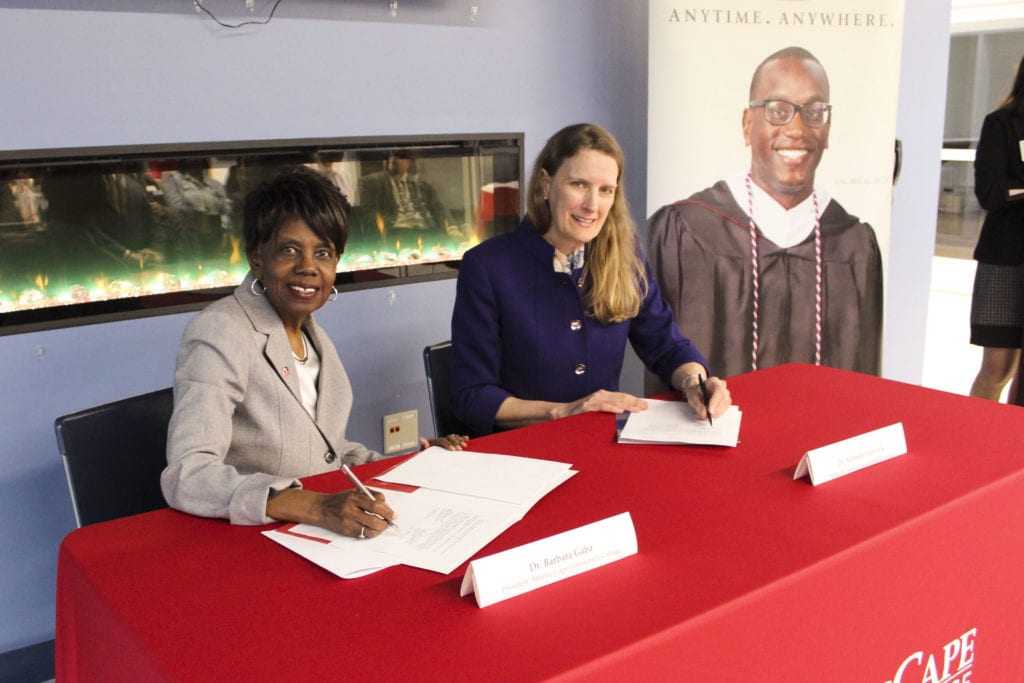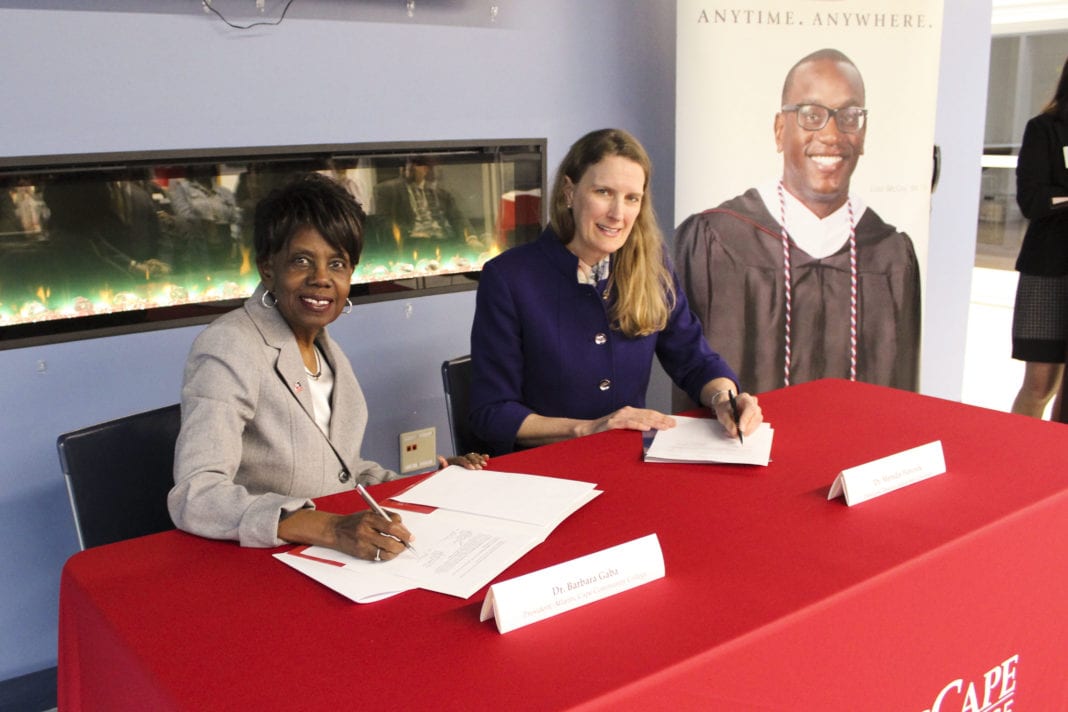In an agreement signed on March 3, 2020 between Thomas Edison State University (TESU) and Atlantic Cape Community College, Atlantic Cape Community College students will be allowed to transfer up to 90 community college credits and then complete the remaining 30 credits required for graduation with TESU through a newly established TESU/NJ 3+1 Pathways Program.
The move aligns with goals of the New Jersey Office of the Secretary of Higher Education to create more 3+1 programs as well as more college-educated New Jersey residents.
“Atlantic Cape Community College provides exceptional educational opportunities to students throughout the region and beyond, and we are excited to partner with them,” said Dr. Merodie A. Hancock, Thomas Edison president. “TESU developed the 3+1 program because we know that New Jersey community college graduates are well prepared to take on a four-year degree. And together with our community college partners, we are building affordable and timely degree completion pathways in high demand fields.”
Through this innovative program, students can remain at Atlantic Cape for an additional 30 credits beyond the associate degree and pay for those credits at the community college rate. Thus, this new program promotes associate and baccalaureate degree completion while driving the New Jersey State Office of Higher Education goal of 65 percent degree attainment by 2025, with the added benefit of keeping students in New Jersey. We see this as a three-way win for our students, our institutions and the state.
“We are proud to partner with Thomas Edison State University to bring this innovative program to Atlantic Cape, as it provides an open-access opportunity for our students to further the mission of degree completion, while at the same time lessening the financial burden of earning a college degree,” said Dr. Barbara Gaba, Atlantic Cape president.
New Jersey’s community colleges offer an affordable education for more than 325,000 students at more than 60 campuses, making them the largest provider of higher education in the state. By working together, Thomas Edison State University and Atlantic Cape Community College will help the state’s economy to grow and industries thrive by producing graduates with the skills necessary for high-quality careers.

Thomas Edison State University provides distinctive undergraduate and graduate education for self-directed adults through flexible, high-quality collegiate learning and assessment opportunities. One of New Jersey’s senior public institutions of higher education, the University offers associate, bachelor’s, master’s and doctoral degree programs. Students earn degrees through a wide variety of rigorous and high-quality academic methods that can be customized to meet their individual needs. Identified by The New York Times as “the college that paved the way for flexibility,” The University is a national leader in the assessment of adult learning and a pioneer in the use of educational technologies. The University is home to The John S. Watson Institute for Public Policy and the New Jersey State Library is an affiliate.
Atlantic Cape Community College is a comprehensive two-year community college serving the residents of Atlantic and Cape May counties. The college offers more than 40 career, transfer and workforce development programs to more than 8,000 students annually at three campuses in New Jersey: Atlantic City, Cape May Court House and Mays Landing. The college boasts several courses of study including nursing, aviation and drone technology, criminal justice, liberal arts and the Academy of Culinary Arts, rated the no. 1 culinary school in New Jersey. Graduates can continue their education with any number of four-year institutions, including Rutgers University, which is housed on the Mays Landing Campus.
To learn more, go to www.tesu.edu/3plus1.





